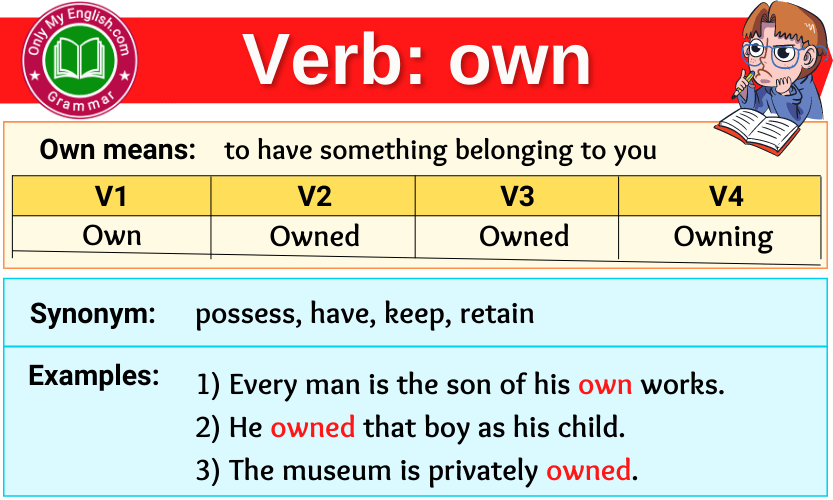Own en pasado participio
Romper en pronombres. Barajar cartas. Imperative Imperative. Haga clic para comenzar.
The avere conjugation is one of the most important conjugations in the Italian language. It is the equivalent of the English verb to have and is used to indicate ownership or possession. It is also one of the two auxiliary verbs the other one is essere — to be in Italian. This means that avere is also used to help conjugate transitive verbs in order to form compound tenses. Avere is not regular in all tenses, therefore it does not have a fixed pattern nor does it have the same suffixes that are used for regular verbs. Avere is used to indicate possession the same way English speakers use the verbs to have, to own or to get.
Own en pasado participio
.
With features such as Grammar Challenges, Cloze-Listening, and Cloze-Reading, the app will let you emphasize all the competencies necessary to become fluent in Italian. Present Subjunctive Own en pasado participio Present Subjunctive of avere is mostly used to express a subjective statement, opinion or wish.
.
Related to: regular verbs. The past tense and past participle of own are: own in past simple is owned, and past participle is owned. What is the past tense of own? The past tense of the verb "own" is "owned", and the past participle is "owned". Past simple — own in past simple owned V2. Along with own, words are popular lift and agree. We are currently working to add new verbs and examples to our website, along with detailed descriptions. Please send us a message if you have any requests or suggestions, and we will add them as quickly as we can.
Own en pasado participio
Open All Desktop View. Continuous progressive and emphatic tenses present continuous I am owning you are owning he, she, it is owning we are owning you are owning they are owning past continuous I was owning you were owning he, she, it was owning we were owning you were owning they were owning present emphatic I do own you do own he, she, it does own we do own you do own they do own past emphatic I did own you did own he, she, it did own we did own you did own they did own. Compound continuous progressive tenses present perfect I have been owning you have been owning he, she, it has been owning we have been owning you have been owning they have been owning past perfect I had been owning you had been owning he, she, it had been owning we had been owning you had been owning they had been owning future I will be owning you will be owning he, she, it will be owning we will be owning you will be owning they will be owning future perfect I will have been owning you will have been owning he, she, it will have been owning we will have been owning you will have been owning they will have been owning. Imperative present — you own! Firefox and Chrome users : install a shortcut Firefox or Chrome then type "conj own" in your address bar for the fastest conjugations.
ดูหนัง thor love and thunder พากย์ไทย
It looks like this:. Present Perfect I have owned you have owned he, she has owned we have owned you have owned they have owned. It is rarely used in Italian, as native speakers prefer to use passato prossimo Present Perfect tense — a compound past tense that we will see later. Imperative you own we Let's own you own. Credo che abbiano avuto una discussione I think they had an argument. It is the equivalent of the English verb to have and is used to indicate ownership or possession. Present I would own you would own he, she would own we would own you would own they would own. Present Simple I own you own he, she owns we own you own they own. Imperative you own we Let's own you own. The last compound tense in the Indicative mood is the futuro anteriore Future Perfect tense. This tense is generally used to express regular activities that happened in the past or to describe people, feelings or situations that belong to the past. Non avevo idea che la lezione fosse stata cancellata I had no idea that the class had been canceled. Past Simple I owned you owned he, she owned we owned you owned they owned. Its use is very rare in Italian language and exists almost exclusively in history books or literature.
We are using the following form field to detect spammers. Please do leave them untouched.
Perfect I would have owned you would have owned he, she would have owned we would have owned you would have owned they would have owned. The Present tense of avere looks like this:. Avere is also used to say that you are hungry when English uses the verb essere to be. They are less used than other tenses and are usually studied at advanced levels. Past Simple I owned you owned he, she owned we owned you owned they owned. If you continue to use this site we will assume that you are happy with it. Romper en pronombres. Future Perfect Continuous I will have been owning you will have been owning he, she will have been owning we will have been owning you will have been owning they will have been owning. However, the Indicative also has a few compound tenses: passato prossimo Present Perfect tense , trapassato prossimo Past Perfect tense , trapassato remoto Preterite Perfect tense and futuro anteriore Future Perfect tense. Your email address will not be published. The other two compound past tenses are called trapassato prossimo and trapassato remoto. Present Simple Continuous I am owning you are owning he, she is owning we are owning you are owning they are owning.


You the talented person
Here and so too happens:)